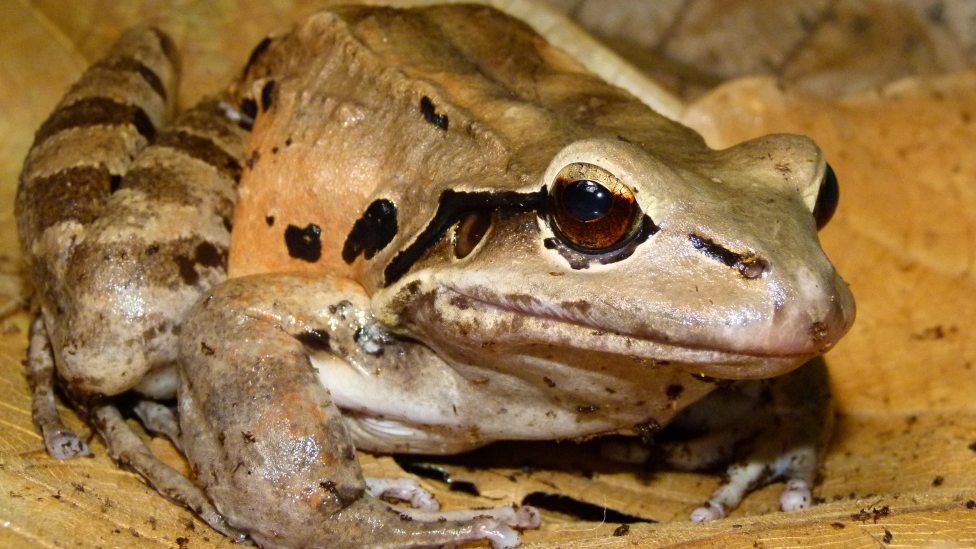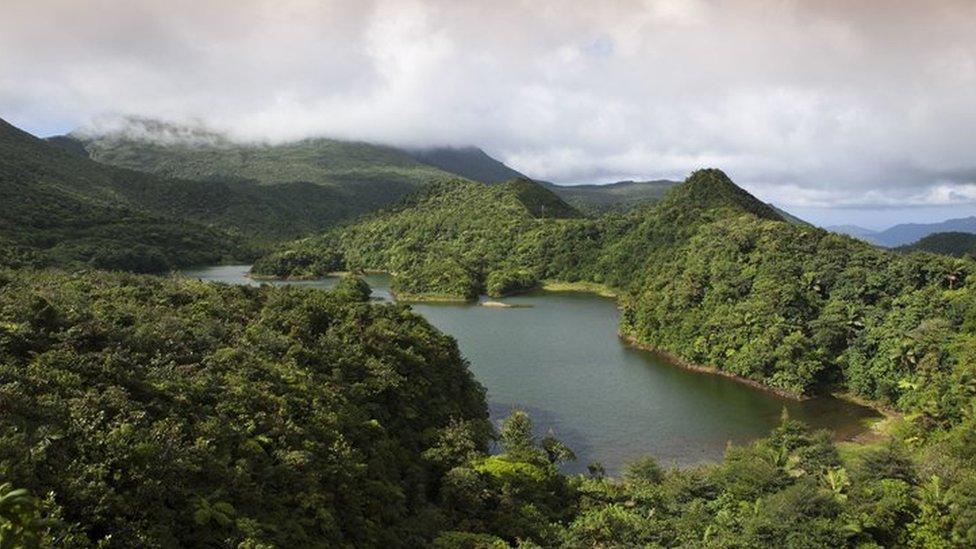Mountain chicken frogs at risk of extinction, charity warns
- Published
- comments

Mountain chicken frogs are one of the world's largest species of frog
Conservationists around the world are calling for urgent efforts to save the critically endangered mountain chicken frog.
It comes after a survey found only 21 of the frogs left in the wild.
Mountain chicken frogs are the largest native frog species in the Caribbean - weighing up to 1kg.
However, due to factors including habitat loss and disease, they can now only be found on one island in the region.
What's happened?

Dominica in the Caribbean is the only place on Earth where mountain chicken frogs can be found - and yes it is hilly there
The mountain chicken frog is one of the world's largest species of frog.
Its reddish brown and cream colour provides camouflage against the leaf litter of the forest floor, while its large legs hold enough power to jump over the head of a person who is standing up.
Mountain chicken frogs were once found widespread across seven Caribbean islands but now can only be found on the island of of Dominica.
For the past 20 years a global network of experts has conducted research into the critically endangered frog, trying to prevent its extinction.
A recent survey by the group found their numbers had dropped to worrying levels in the wild, and that threats such as infectious disease, habitat loss, climate change and pollution continue to threaten the future of the species.
This means that the species are at an extremely high risk of extinction in the wild.
The IUCN has listed black rhinos, many species of orangutan and Sumatran tiger as having fallen into this category.
Professor Andrew Cunningham, from the Zoological Society of London (ZSL), said despite the challenges it faced, there was still hope for the mountain chicken frog.
The team was able to identify a male frog they believe to be "at least 11 years old - making him the oldest wild mountain chicken frog known to be in existence".
"If this individual can persist in the face of endless challenges, it gives us hope for the future of the species more widely," Prof Cunningham said.
Why is it called a mountain chicken frog?
The official name for the species is the Giant Ditch frog, but it is more commonly known as the mountain chicken.
ZSL said the exact origin of this common name was unknown, but one theory was that it refers to how mother frogs and their froglets stay together for some time after leaving the nest where they hatch, similar to how hens raise their young chicks.
Other theories suggest it is because their flesh tastes like chicken meat when cooked. Or perhaps it derives from the squawking noise it makes when it is in distress.
At least Dominica is mountainous, so one part of the frog's common name is fitting.
